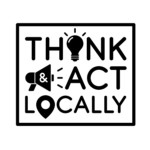
Think and Act Locally: The 2026 Civic Challenge #476
The Think and Act Locally newsletter serves as a community-focused guide for the Deer Park, La Porte, and Pasadena areas at the start of 2026. The primary mission is to encourage civic engagement, specifically urging residents to attend city council meetings to influence local decisions like the potential consolidation of La Porte and Shoreacres. Beyond politics, the source highlights economic growth, noting new business openings and chamber of commerce awards that foster regional prosperity. Educational achievements are celebrated through AP Scholar recognitions and updates on grants awarded to local colleges. The publication also functions as a community resource, providing a calendar of social events, restaurant spotlights, and various volunteer opportunities. Ultimately, the text promotes a philosophy of individual empowerment, suggesting that small, consistent actions in one’s own neighborhood lead to meaningful change.